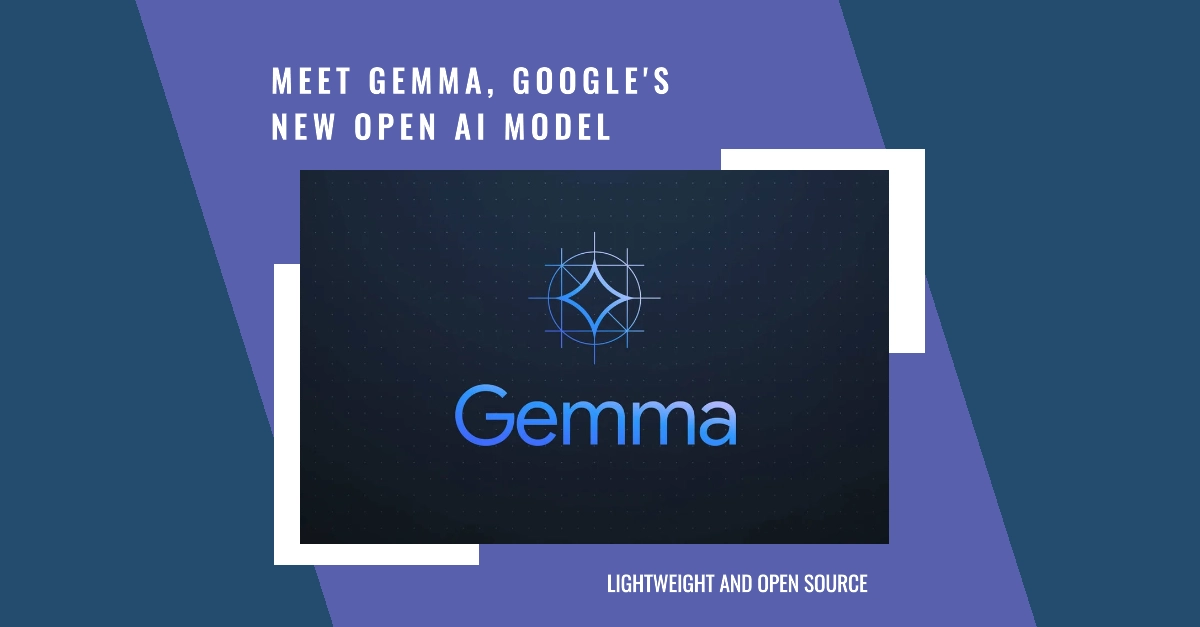Artificial intelligence (AI) continues to make groundbreaking strides, shaping our world in countless ways. Google, a leader in AI innovation, has taken another significant step forward with the introduction of Gemma. Gemma is a new family of lightweight AI models explicitly designed to empower developers and researchers.
Derived from the same technology that powers the company’s advanced Gemini models, Gemma promises remarkable capabilities while remaining accessible enough to run on standard laptops and desktops.
What is Gemma?
Gemma isn’t a single AI model but rather a collection of models available in varying sizes and capabilities. Google designed Gemma to prioritize accessibility and affordability while maintaining impressive performance that rivals much larger AI models.
Importantly, the company has made Gemma open-source, allowing developers and researchers worldwide to experiment, innovate, and build upon its foundation.
Why Open Source Matters
Choosing to release Gemma as an open-source project allows for a broader community of developers, researchers, and enthusiasts to collaborate. Open-source AI models:
- Foster Transparency: The ability to inspect and analyze Gemma’s code promotes trust by understanding the inner workings of the model.
- Encourage Innovation: Developers can modify and customize Gemma to fit specific use cases, potentially leading to breakthroughs.
- Level the Playing Field: Open-source models like Gemma make powerful AI accessible to smaller companies and research teams, fostering healthy competition and technological advancement.
Key Features of Gemma
- Lightweight: The most striking feature is how Gemma models pack extraordinary capabilities into a much smaller footprint compared to other AI models. This allows Gemma to run efficiently on a variety of devices, even those without specialized AI hardware.
- Performance: Despite the focus on size, Gemma doesn’t compromise performance. In internal benchmarks, Google reports that Gemma outperforms significantly larger open models, particularly in areas of language understanding and text generation.
- Safety and Responsibility: Google emphasizes its commitment to responsible and ethical AI development. Gemma incorporates techniques that remove personal information from training data and uses human feedback to refine the model’s behavior, aligning with Google’s AI Principles.
Potential Applications
Gemma’s versatility makes it adaptable to a wide range of use cases:
- Next-Generation Chatbots: Gemma could power advanced customer service chatbots that provide more helpful, intelligent, and personalized interactions.
- Content Creation Assistance: Writers and marketers could use Gemma to generate text outlines, brainstorm fresh ideas, or assist in translation tasks.
- AI-Powered Accessibility Tools: Developers could build solutions leveraging Gemma to improve accessibility features for vision-impaired or hearing-impaired users.
- Research and Innovation: Academic researchers and smaller labs could use Gemma to experiment with AI applications that were previously constrained by the high resource requirements of larger models.
How to Get Started with Gemma
Google aims to make Gemma widely accessible and offers several options for getting involved:
- Free Access on Kaggle: Kaggle, a popular machine learning platform, provides direct access to Gemma for experimentation and exploration.
- Colab Notebooks: A free tier is available for using Gemma within Colab notebooks, which provide a cloud-based coding environment.
- Google Cloud Credits: New users can get started with Gemma using $300 in credits on Google Cloud. Researchers can apply for even more credits (up to $500,000) for projects requiring greater resources.
You can also explore more about Gemma and access QuickStart guides on ai.google.dev/gemma.
Google’s Commitment to Responsible AI
Alongside the launch of Gemma, Google released its “Responsible Generative AI Toolkit.” This toolkit is a collection of resources and guidelines focused on developing safe and responsible AI applications, emphasizing:
- Debugging & Auditing Tools: Developers can use these tools to inspect Gemma’s outputs, identifying potential biases or unexpected behaviors.
- Best Practices: Google shares its expertise in AI development, focusing on safety, fairness, and minimizing harmful outcomes.
The Future of Lightweight AI
With the introduction of Gemma, Google sets a new standard for open and accessible AI models.
By placing powerful AI tools in the hands of developers and researchers, Gemma has the potential to accelerate innovation, democratize AI, and lead to a new wave of transformative applications.
